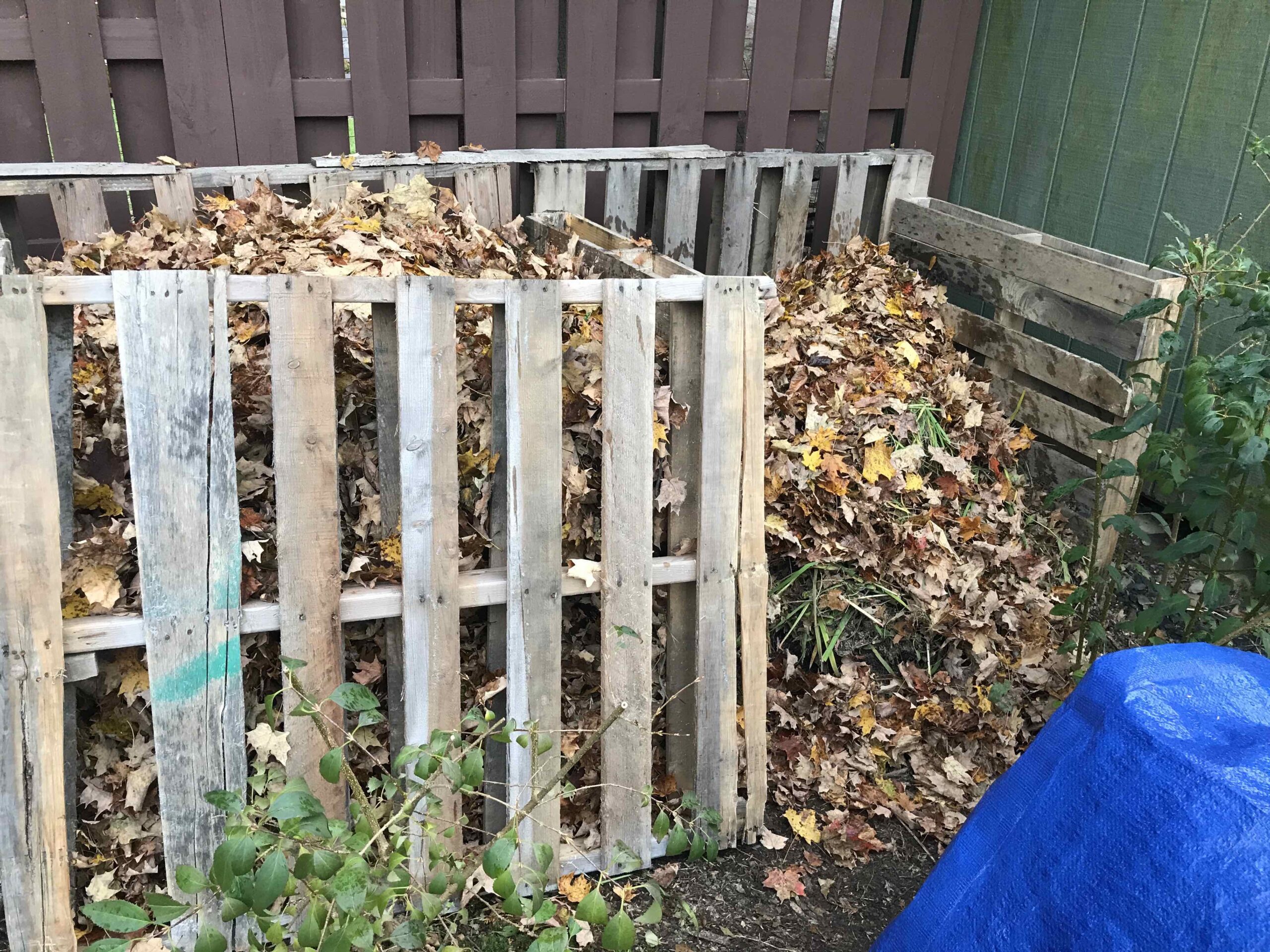Why have a compost heap?
1 – You recycle organic matter;
2 – Reduce waste;
3 – Have access to virtually unlimited, high quality organic matter.
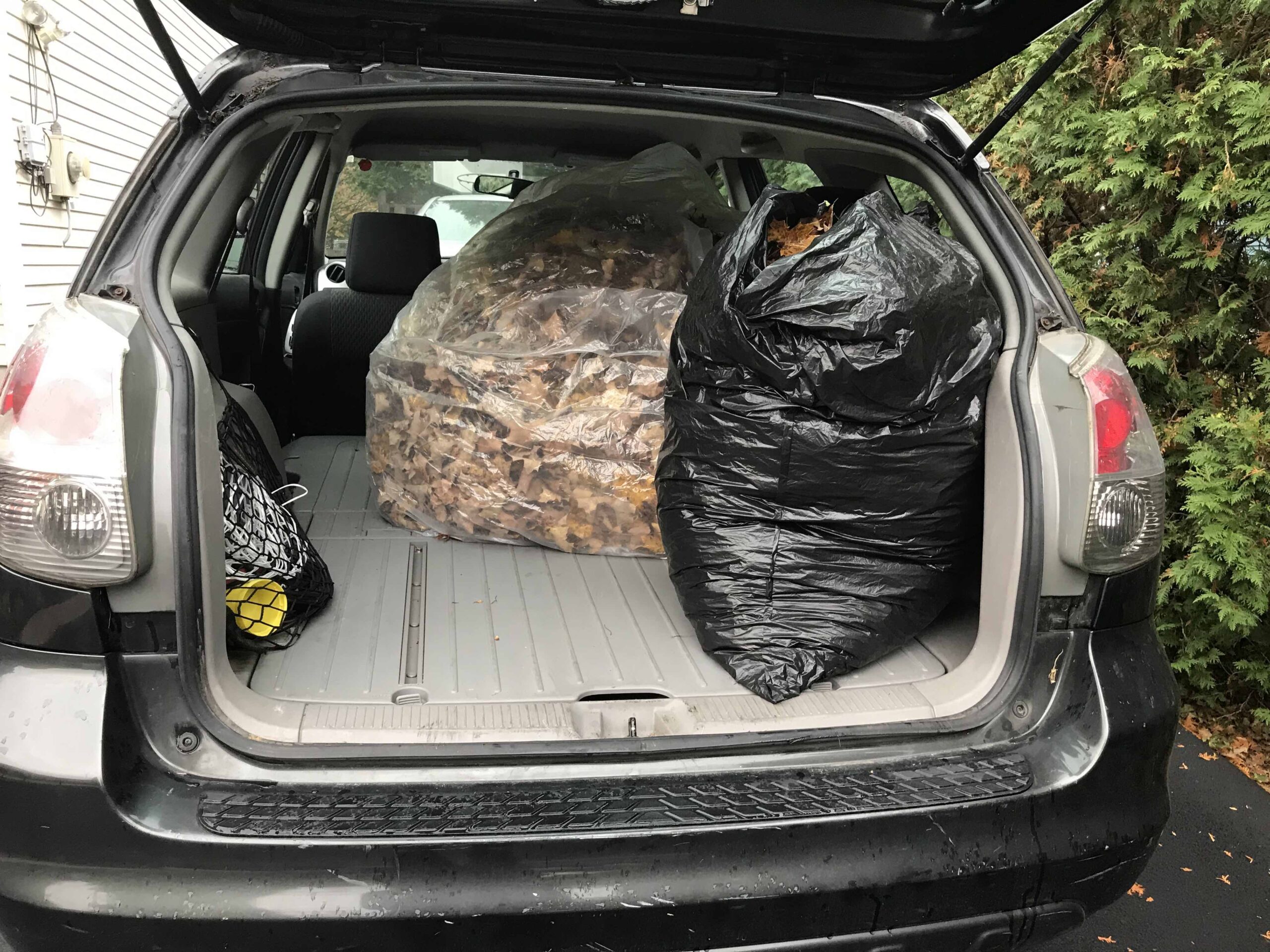
I’m always on the lookout for organic matter: leaves, wood chips, etc. On our property we have three dogwood trees and several forsythias, and in the fall they provide lots and lots of leaves for the compost. I regularly add spent coffee grounds (ref 1, ref 2, ref 3, ref 4) to my compost because they provide nitrogen, and earthworms just love them. Sometimes I also add grass clippings, leaves, or wood chips from neighboring yards to further enrich the compost.
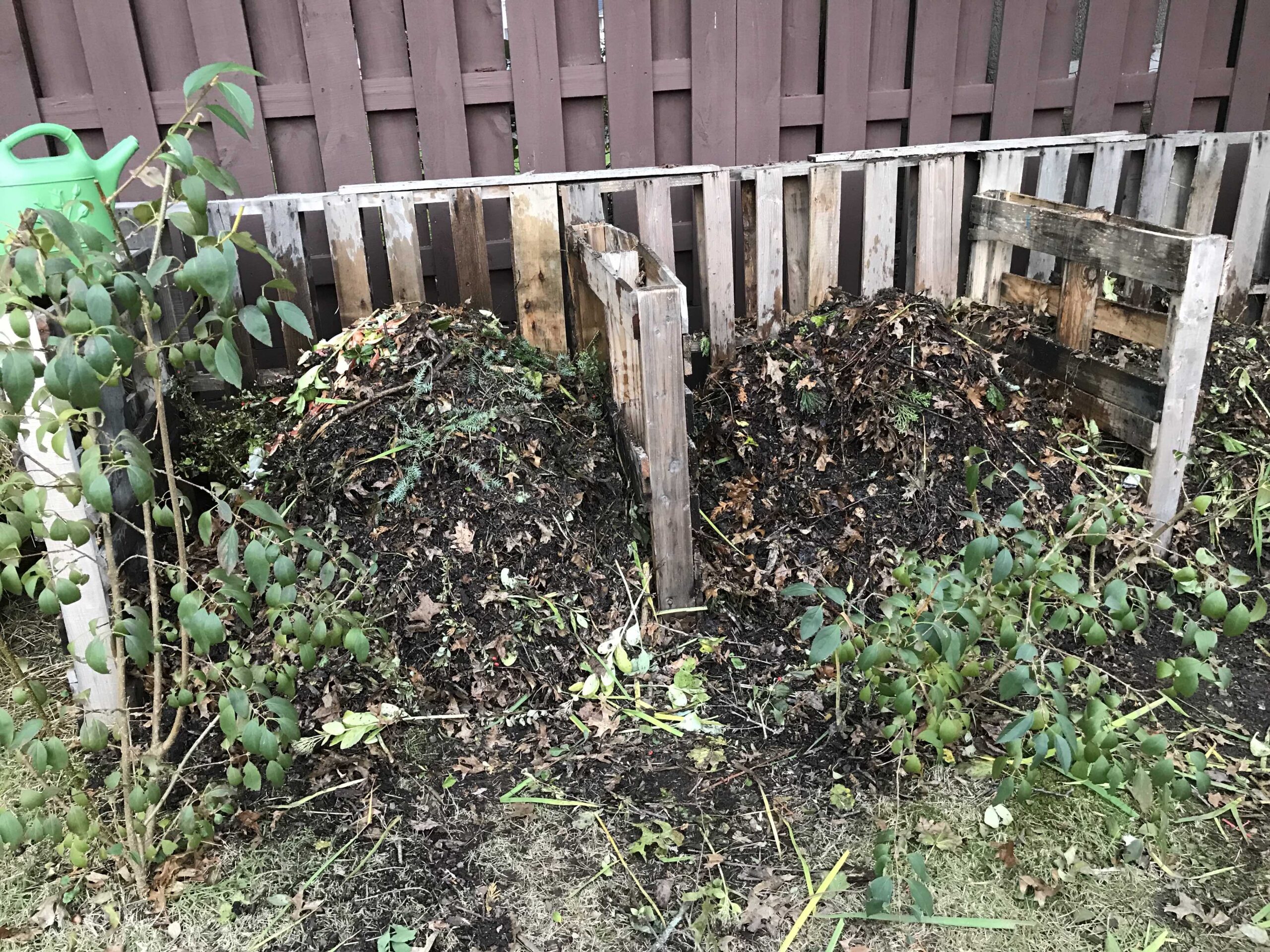
Currently, I have a dedicated 6′ x 12′ area surrounded by pallets. You can find these pallets outside small businesses, where they pile them up, hoping someone will take them away. Sometimes they ask for a little money, but you shouldn’t have to pay for hauling someone else’s garbage. I always go inside the store and ask for permission before taking them; you never know. Craigslist is a great resource for finding free pallets, and you should be familiar with this resourceful website. On Craigslist, you’ll find a ‘free’ area under their ‘for sale’ section.
Small areas separated by pallets simplify mixing the compost with a pitchfork. To ensure proper aeration and speed up decomposition, mix the compost pile at least once a month. Additionally, add water while turning the compost to further accelerate decomposition.
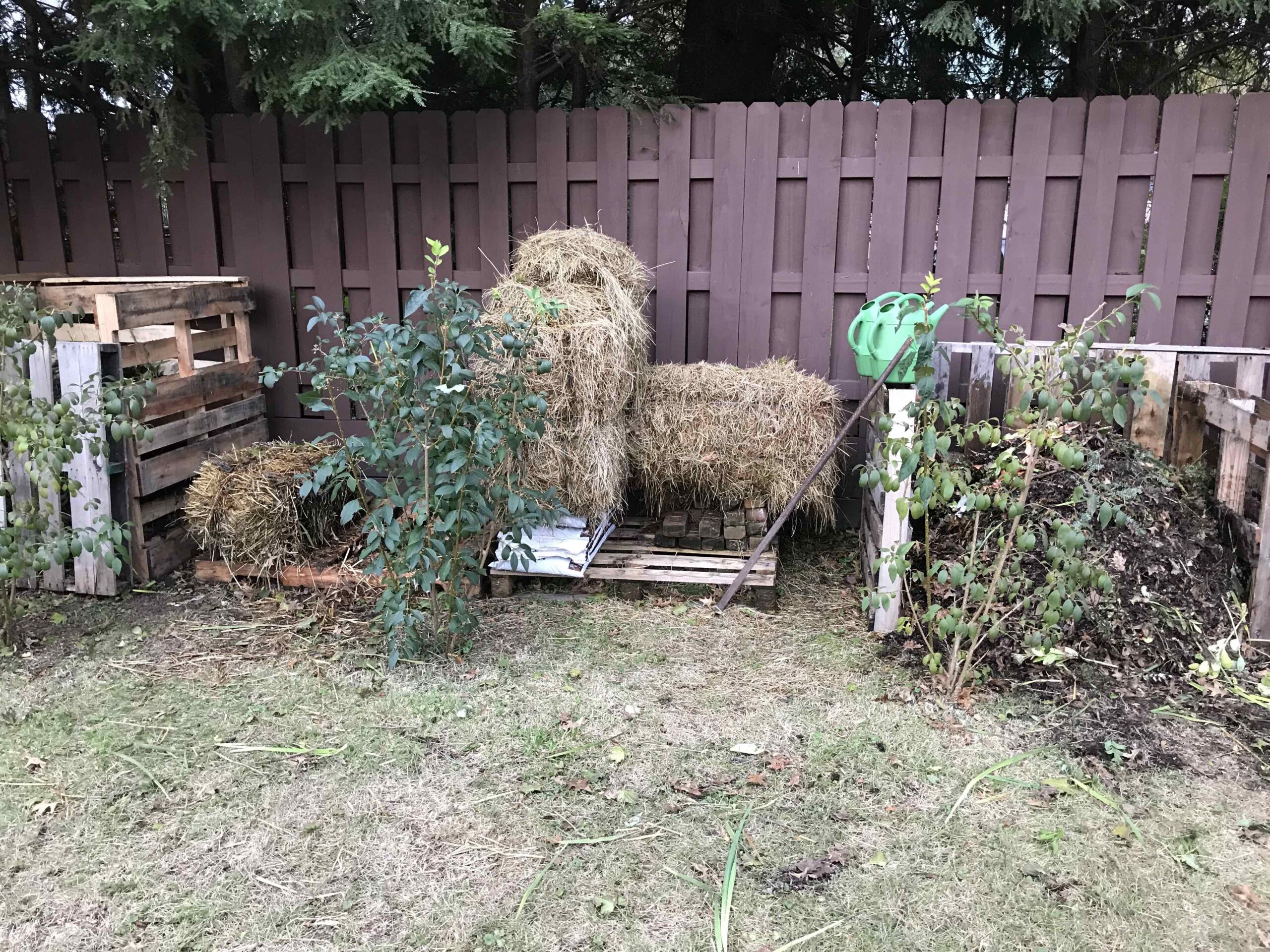
Composting kitchen scraps and vegetable clippings daily helps reduce smelly garbage inside the house. However, gardening projects require early planning. Buying dirt is costly, particularly if quality matters. It’s best to avoid big-box stores for this purchase. Filling a 16′ x 4′ x 2′ area with dirt can cost hundreds of dollars. With nine raised beds and twenty large pots, I would have incurred significant expenses filling them with dirt. Moreover, the source of store-bought dirt is often uncertain.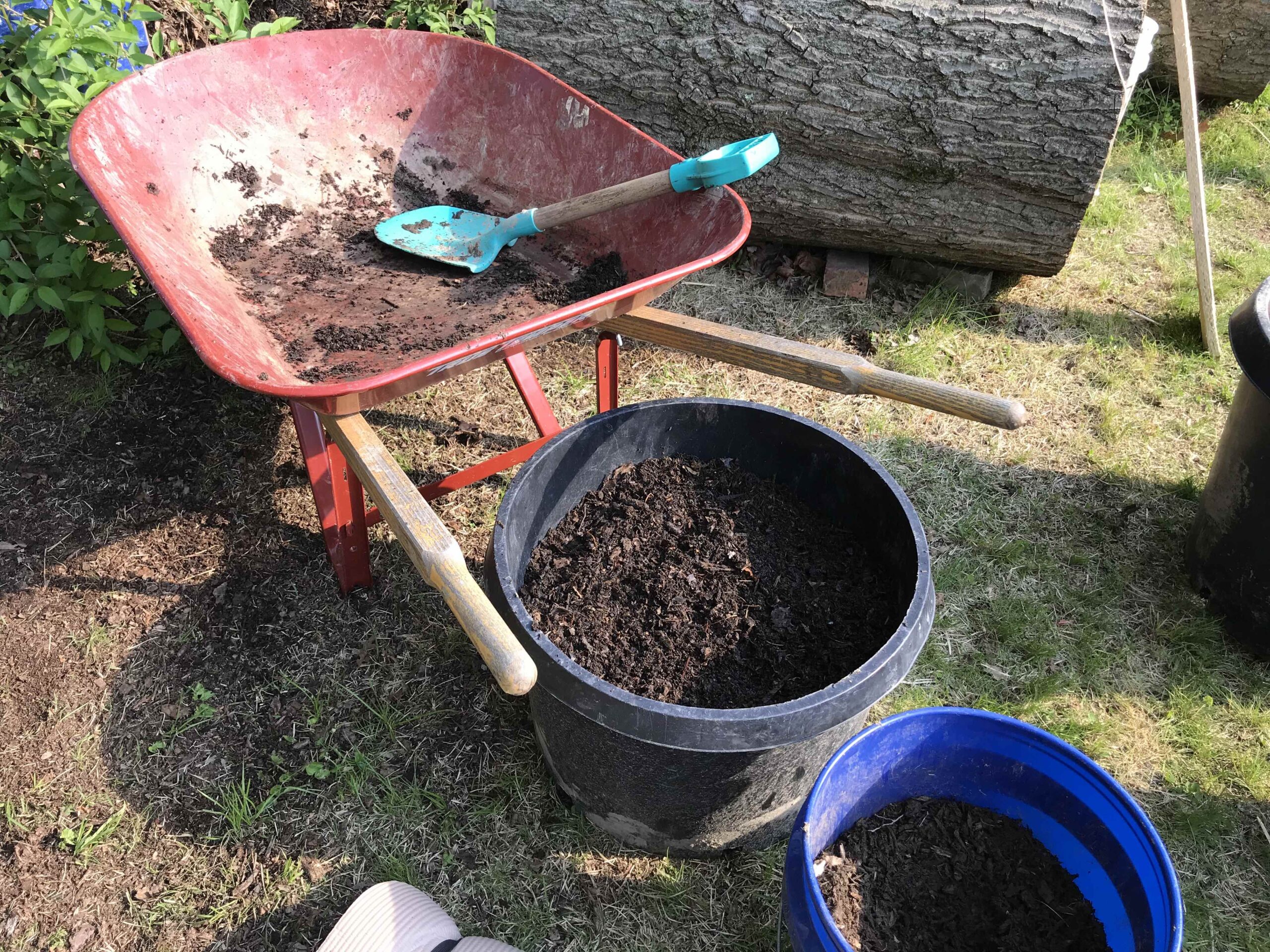
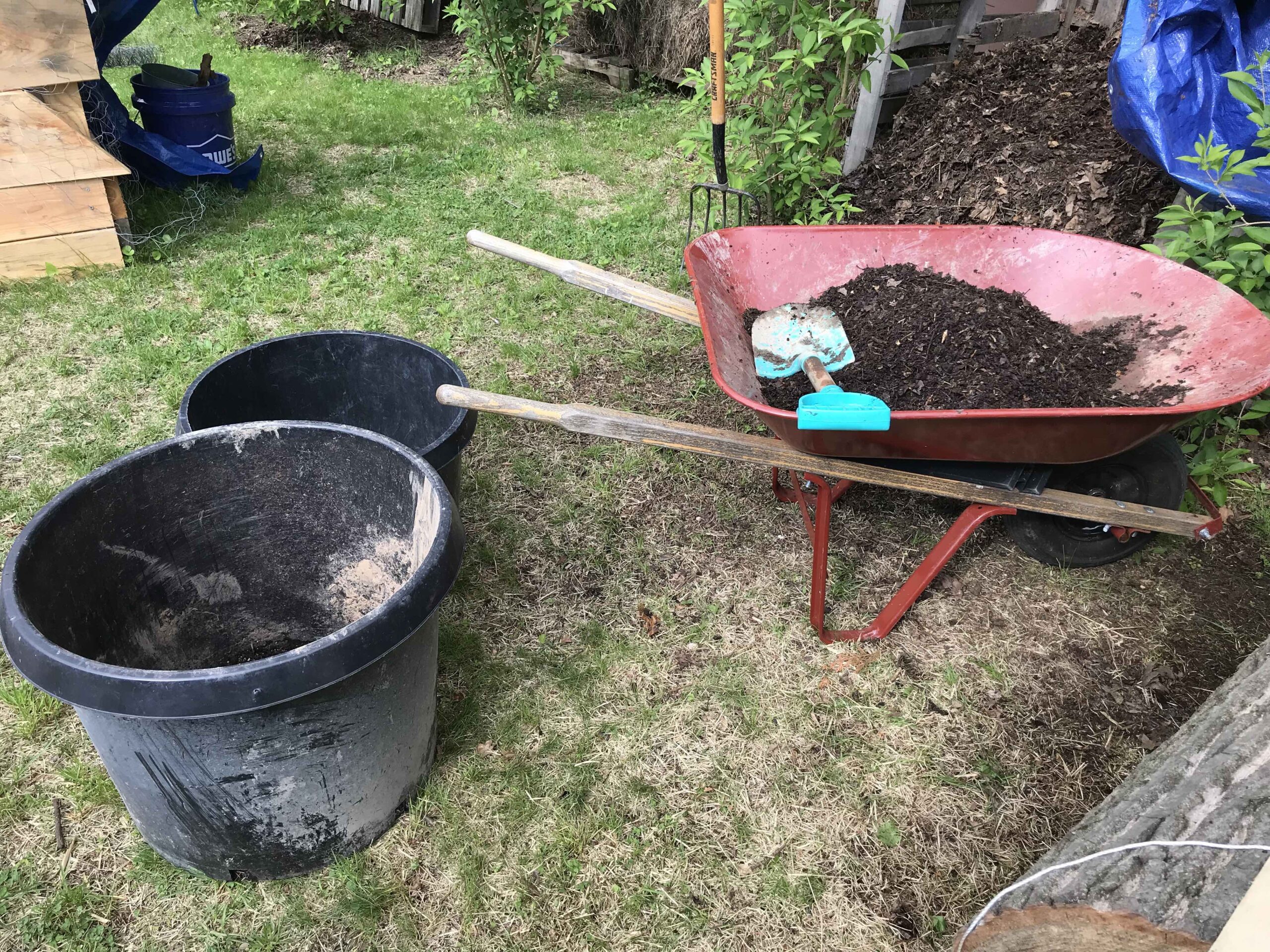
Unfortunately for us, nothing is free. The compost does not contain fine dirt, but rather organic matter that may not have fully decomposed, and in some cases, you may have to remove it before using it. For this reason, I made this sifter, which works well and I use it very often. From experience, I have found that avocado skins and pits take at least one year to fully decompose. Also, you should remove those pesky little tags that they stick on fruits and vegetables before adding them to the compost. I can spot these tags from several feet away (ref 1).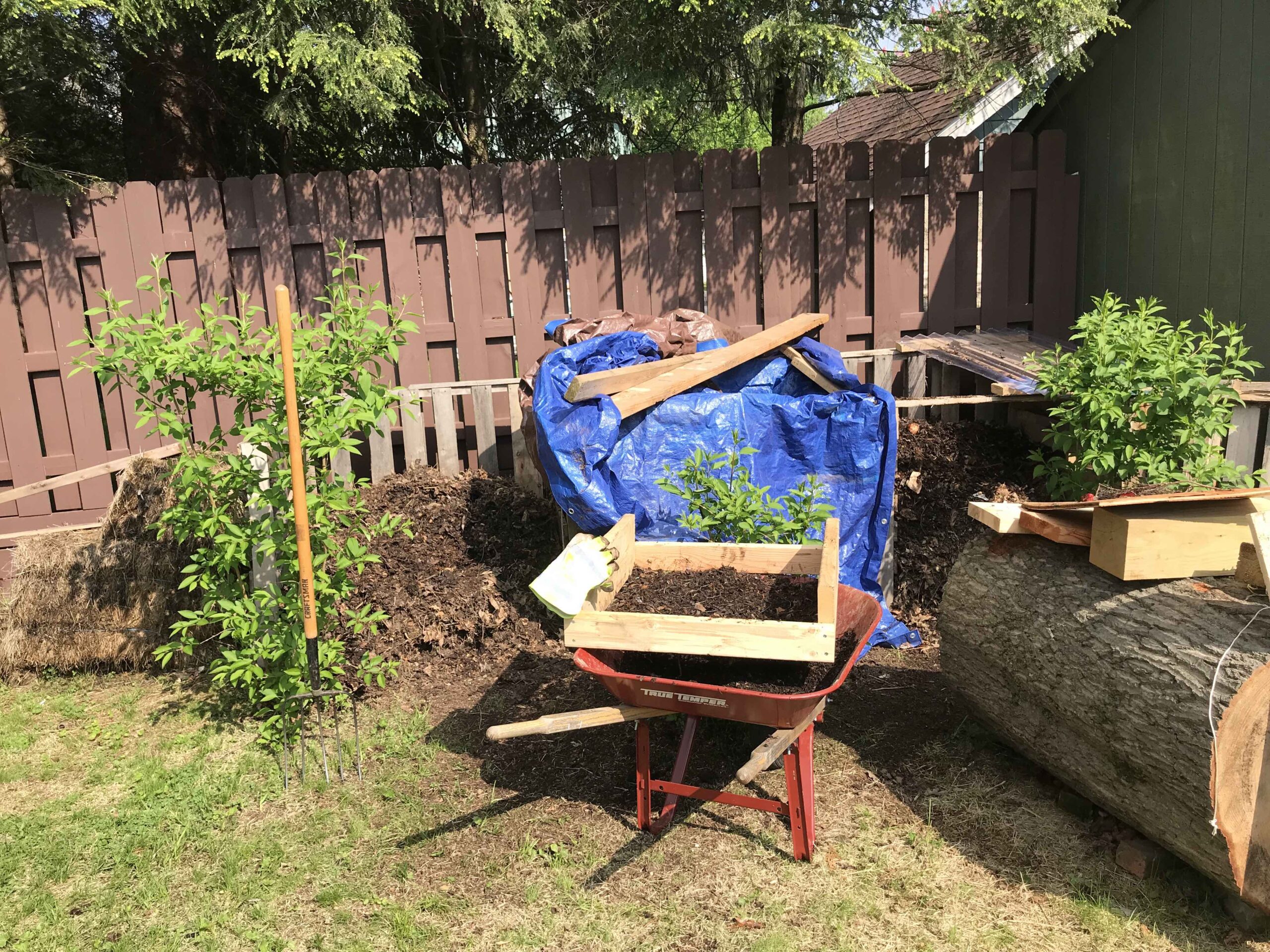

To keep your compost “happy”, add organic matter, turn it at least once a month, and add water. You should also introduce air (oxygen) to keep its decomposition going. Here is a nifty video to help you in this area.
More content here soon…

